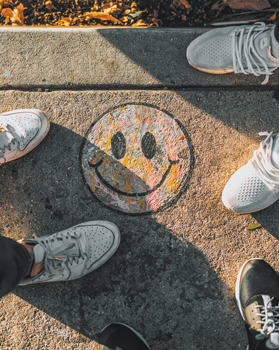 I miss the Sears store. Not because of the big shoe section or tool department, but because it’s where I learned so much about life.
I miss the Sears store. Not because of the big shoe section or tool department, but because it’s where I learned so much about life.
I grew up in a Midwest city at a time when Sears was still Sears & Roebuck, children were bused from one side of town to another to achieve integration in schools and parents allowed their kids to come in fourth without a trophy. I have many fond memories of trips to the local Sears store — a multistory giant with escalators, an amazing toy section and pretty much anything you’d ever think to buy.
It’s where I learned the value of a dollar — taught one quarter at a time at the enormous candy counter on the ground floor. With my meager weekly allowance in my pocket, I’d circle the glass island, surveying dozens of options to determine which one was worthy.
The attendant probably grew weary of me asking “how much would twenty-five cents get me?” of this selection or that. Though I handled the task like a man on a mission, I was merely a boy on a budget.
Of much greater significance than a white paper bag filled with chocolate stars or peanut clusters, though, I can also trace my awareness of human compassion back to that same Sears store in Wichita, Kansas.
It happened around the Christmas holiday in the shoe department. I was honestly oblivious to the fact I was being raised in a time of segregation. My father was a Navy veteran. He’d been a corpsman and taught us the value of life without talking about the color of anyone’s skin. My mother was schooled in an institution for the blind. Her friends and coworkers were more likely to bond over ability (and disability) than they were skin color.
I preface my story with those facts because what happened in the Sears shoe department that particular wintry day is the first time I recall being aware that I rarely saw black people as a young boy.
As I dangled my legs over the chair, waiting for the clerk to return with the shoes I’d chosen, I overheard a black lady and her two young boys discussing the fact they could only afford shoes for one of the boys that day. More than that, I noticed the clerks kept walking past them to help other customers as the mother told the boys, “Be patient, we’ll get our turn.”
While it sounded like an otherwise normal conversation, I recall wondering why no one was helping them with their shoes. I wanted to say something. I wanted to do something. I wanted them to get shoes for both boys, and I wanted someone to help them.
I walked away from the store that day — shoes in hand — never realizing I’d recall that scene hundreds of times in the years since. I know now I was witnessing discrimination. I know now I was witnessing need. And even as a boy, I was moved. Compassion is in us. We all have the capacity to care. And I pray we learn to exercise that capacity to its fullest.